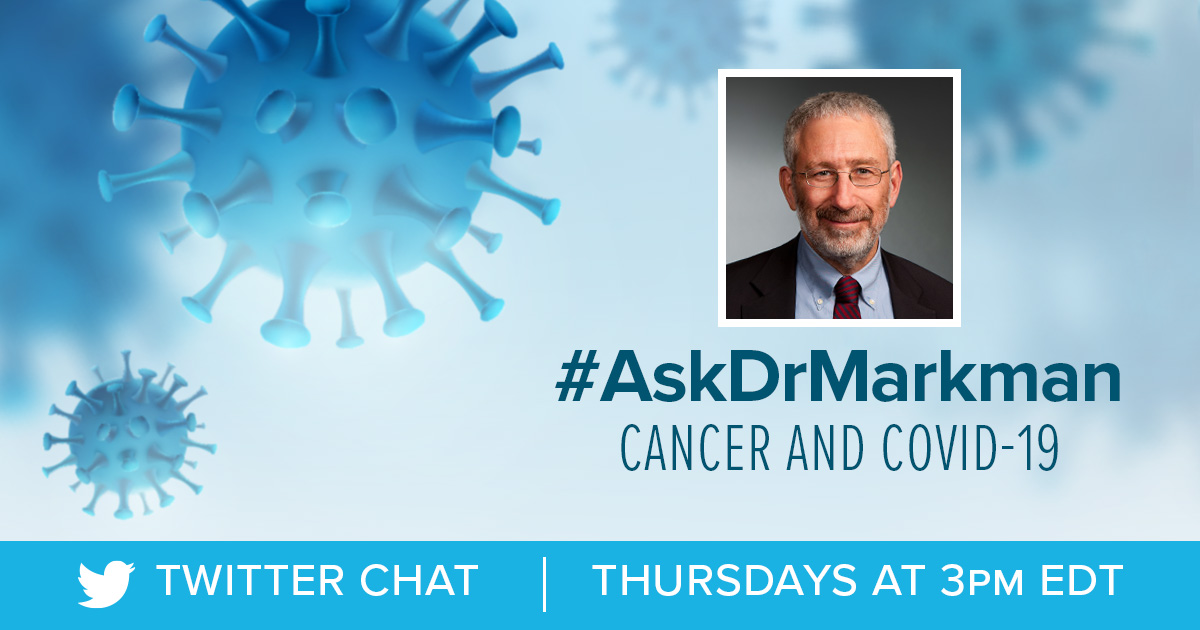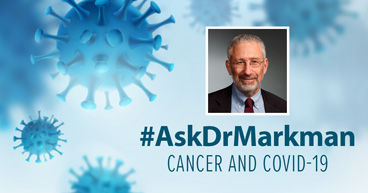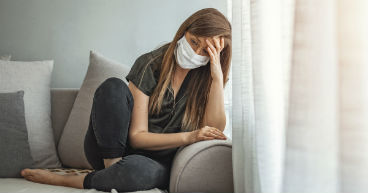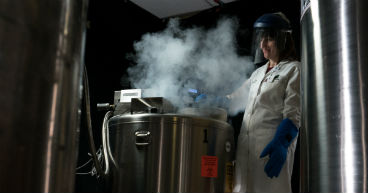
The COVID-19 pandemic has created a constantly evolving flow of new and sometimes confusing information. Cancer patients have many questions about how the virus may affect them, their access to ongoing treatments, their overall health and steps they can take to help reduce risk of infection. Maurie Markman, MD, President of Medicine & Science at Cancer Treatment Centers of America® (CTCA), has launched a weekly Q&A hosted on Twitter to answer your questions, in real time and as questions are sent to us online and by phone. Follow us on #AskDrMarkman. Here’s this week’s chat:
Question: As a cancer survivor, I know how important childhood vaccinations are in preventing the spread of infectious diseases to immune-compromised individuals. Has COVID-19 had an impact on those vaccinations?
Answer: You are absolutely correct. Childhood vaccinations are a critically important, safe and highly effective strategy to prevent serious communicable infections, including measles. Unfortunately, there is strong evidence the COVID-19 pandemic has seriously interfered with this essential public health strategy. For example, Philadelphia’s Health Department reported a 50 percent drop in immunizations for kids aged 2 and younger since March.
Q: My sister has a pre-existing heart condition and is also undergoing cancer treatment, so she’s doubly worried about COVID-19, since she heard it can do damage to the heart. Is that accurate?
A: While the focus of reports of the impact of COVID-19 has been on damage to the lungs, the virus has also been shown to affect the kidneys, the heart and other organs. One recent report noted that, in the most seriously ill patients, the virus can cause the heart to stop functioning. More than half the patients included in that report were younger than 60.
Q: My son is a six-year cancer survivor and was looking forward to going back to summer camp. Are these camps safe?
A: This is an important question. I’d recommend talking with your son’s oncologist regarding the general safety of summer camp activities for his situation and specifically the camp you may be considering. However, it’s important to note that several summer camps that opened this year have already closed after a number of young campers and staff tested positive for COVID-19. It’s possible these camps may be able to reopen later in the summer, and other camps may be more successful in their efforts to provide a safe COVID-19-free experience. Make sure to ask camp officials what they’re doing to protect against the virus’ spread.
Q: Exercise and sports have been a key part of my life in the 15 years since I beat cancer. But I am concerned about my son’s plans to try out for the freshman cross-country team at his college amid this pandemic. Do you think that’s a good idea on his part?
A: You and your son should explore the specific details and steps his college is taking to protect its student athletes, and staff, then base your decision on whether they are taking adequate precautions. However, it’s important to note that several universities have at least temporarily suspended voluntary training on campus following positive COVID-19 testing among student athletes.
Q: It is disturbing that our country continues to see a spike in COVID-19 cases. Are we in the so-called second wave already?
A: Some experts have characterized the current COVID-19 situation in the United States as a continuation of our first wave, rather than a beginning of a second wave of infections. However, other countries that have been far more successful than we have in controlling the initial wave of infections appear to be seeing the beginning of a second wave, including Austria, Japan, Iceland and Australia. Many experts believe it is inevitable that we will also experience a second wave after this one slows down, which means we are in for a very long haul with this terrible disease.
Q: I’m 58 and just finished my prostate cancer treatment, so I’m very vigilant about protecting myself from COVID-19, especially since my weakened immune system puts me at a higher risk of infection. Do we know anything more about who’s at risk for the virus?
A: Yes, as more experience is gained worldwide with COVID-19, it’s been possible to more clearly define specific risk factors for this serious viral illness. The U.S Centers for Disease Control and Prevention (CDC) has reported that as people age, their risk of requiring hospitalization, an ICU bed or ventilatory support increases, with the risk being greatest for those 65 or older. Other notable risk factors include obesity and type 2 diabetes, but evidence is now less certain that pre-existing hypertension raises the risk of COVID-19 infection.
Q: My sister is undergoing cancer treatment, and my wife and I have tried to keep our distance from her, even though we have no symptoms of COVID-19. If we don’t have any symptoms, can we still spread the virus?
A: This is a critically important issue, and public health officials and scientists around the world are still attempting to answer it definitively. The World Health Organization (WHO) recently reported that almost half of all COVID-19 transmissions may have been spread by individuals with no evidence of symptoms and no knowledge they’d been infected, which is a major reason for all of us to wear masks and maintain social distancing.
Q: As a cancer patient and concerned citizen, I’m hoping the United States can begin to control the spread of COVID-19, but I don’t see real evidence that’s happening. Do you?
A: Unfortunately, you are correct. There are a number of measures you can use to assess a country’s overall success in controlling this viral pandemic, including the rate of new cases. The disturbing news here is that, while it took 95 days to reach 1 million U.S. cases, it only took 43 days to reach 2 million cases, and another 28 days to reach 3 million cases. Some of this rise is clearly from more testing, but with evidence of increased COVID-19 hospitalizations, it’s clear the United States has a long way to go to control this virus.
Q: As a small business owner, I know the stay-at-home orders in my state have been very difficult for lots of us. Is there evidence they’ve had any positive effect on the pandemic?
A: You are absolutely correct regarding the negative personal, economic and societal effects of stay-at-home orders. However, there is strong evidence that the strategy has had a very favorable impact, with one study noting that, for the 42 states that issued such orders from April 6 to May 13, as many as 250,00 to 370,000 deaths may have been prevented.
Learn about challenges cancer patients may face when returning to work.



